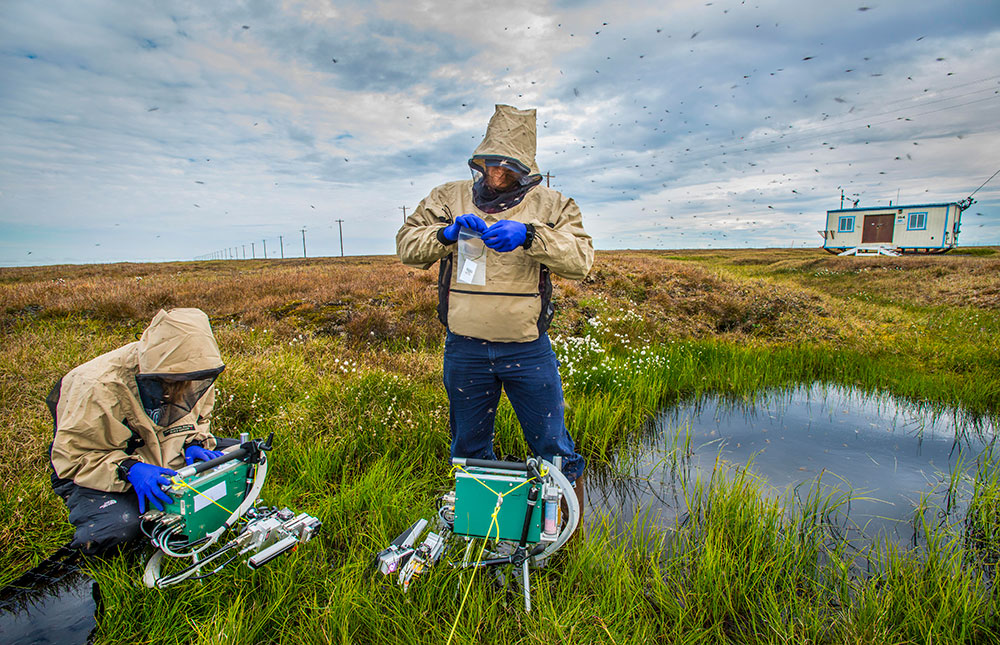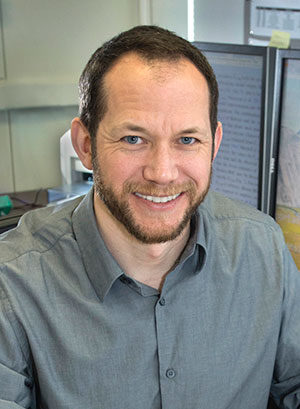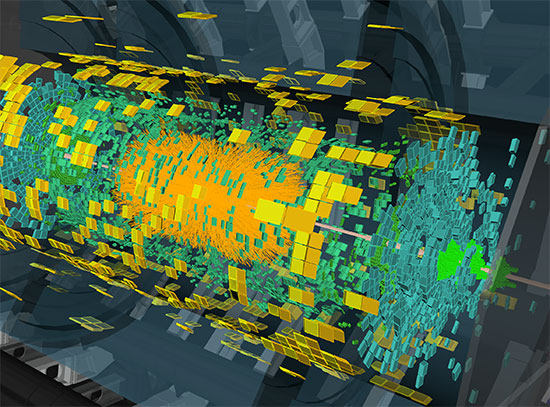521st Brookhaven Lecture: Plants, Climate Change, Photosynthesis
November 12, 2021
 enlarge
enlarge
Braving the bugs, Alistair Rogers (right) and his colleague Stefanie Lasota collect leaf samples in Alaska for analysis (Photo: Roy Kaltschmidt)
Plants have been softening our impact on Earth's climate.
They exchange huge quantities of carbon dioxide and water vapor while converting sunlight into usable energy through a process called photosynthesis.
To answer a question like, "How are our environments changing?"—and to anticipate health and economic risks associated with those changes—researchers develop mathematical models that simulate real-life climate processes.
Photosynthesis has a major role in Earth's complex climate systems. It's also one of the largest contributors of uncertainty in researchers' current climate models.
On Wednesday, Nov. 17, join Alistair Rogers of the Environmental & Climate Sciences Department at the U.S. Department of Energy's Brookhaven National Laboratory for the 521st Brookhaven Lecture. His talk, titled "Plants & Climate Change: Improving Understanding and Model Representation of Photosynthesis in Climate Models," will be held at 4 p.m. on Zoom.
During Rogers' talk, he will discuss how plants and photosynthesis are represented in climate models, with particular focus on the physiology of plant leaves. He will also describe how uncertainty in climate models is being reduced with data collected from field work in the Arctic and tropics.
About the Speaker
Rogers is a biologist and leader of the Terrestrial Ecosystem Science & Technology Group at Brookhaven Lab. His research is focused on physiological processes that affect how plants respond to global change and representing those processes in climate models.
Rogers joined Brookhaven Lab in 1998. He earned a Ph.D. in biology at the University of Essex in the United Kingdom that same year. He earned a joint honors bachelor's degree in biochemistry and botany from the University of Wales, Bangor, also in the United Kingdom, in 1994.
Brookhaven National Laboratory is supported by the Office of Science of the U.S. Department of Energy. The Office of Science is the single largest supporter of basic research in the physical sciences in the United States and is working to address some of the most pressing challenges of our time. For more information, visit science.energy.gov
Follow @BrookhavenLab on Twitter or find us on Facebook.
2021-19259 | INT/EXT | Newsroom










